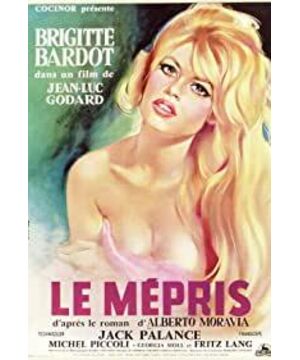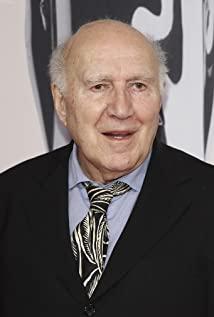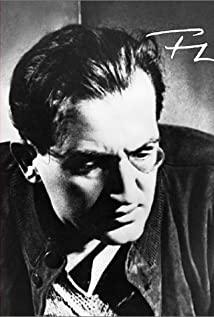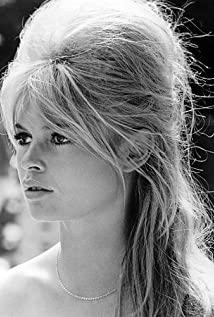The first story, the intro. The story goes like this: The hero is a playwright, and he and his wife, the heroine, meet producer P for a Greek-themed film. P invites the heroine to go on an outing with him in his car, and the hero then arrives late by taxi. It is during this outing that the heroine begins to develop a kind of "contempt" for the hero. This strange and unexplained "contempt" led to a constant spat between the hero and heroine after they returned to the apartment, and the love between the two began to crack. Later, the two went to the beach for a vacation at the invitation of P, where the heroine officially deviated from P, and then she really abandoned the hero and eloped with P, but they both died in a car accident unexpectedly.
The above is the first story. This story contains the substantive main plot of the film that can be objectively described. However, it is the palest and basically does not express anything the film itself wants to express. It is complete in terms of structure, but it is seriously flawed in content, because it does not explain the most crucial point, that is, why the heroine has "contempt" for the hero. So we'll have a second story that makes sense for what happened in the first story, but if the first story is harmless, the second story has a negative effect.
The second story, the narrative body. I've seen a lot of people saying they're not very happy with the film Gundam himself, thinking it has major flaws, I didn't look up what that was, but I think the film can be reasonably narrated as such The second story is probably its biggest flaw (if it really counts). The problem here is that most of the shots and dialogues in the film make us feel foggy about the actual problems between the male and female protagonists, and they are all erasing the reality of the second story. The first story is extracted sexually, but there are still some plot hints in the film, if we single them out, this will constitute a very simple and even shallow story.
First of all, when producer P saw the heroine for the first time, he asked to take her on an outing and sat next to him. This was an awkward position, at least the heroine thought so, so she was quite hesitant about this invitation. , but the hero made her do it. why? Judging from the presentation before the film and the hints afterward, if the male protagonist wants his script to be filmed, he has to succumb to the wishes of the rich and arrogant producer P, so this pushes his wife to P's side. His actions are undoubtedly a kind of flattery, and it is precisely for this reason that the heroine begins to feel contempt for the hero during the outing. This contempt comes from her disgust with the hero's weak attitude. The heroine's contempt for herself was initially hesitant, but it took more shape in the apartment spat with the hero, and she finally decided that she no longer loved the lack of integrity of the hero. Later, during the seaside vacation invited by P, the heroine officially deviated from P. The hero who witnessed all this was undoubtedly very painful. He wanted to save it, and wanted to claim that he wanted to give up the script and no longer be bound by money. , and even tried to shoot to kill P, but failed to actually achieve it. In the end, the poor hero was abandoned by the heroine. The heroine eloped with P in a luxury car, but died in a traffic accident. Oh, God is in the poor and weak hero~
This story is the most plausible, well-reasoned, and understandable, and one can explain it with many real-world factors, like the plight of people under capitalism, the commercialization of movies, love and life, and so on, but it may be four The one in the story that is the furthest from what the film really wants to say. However, this deviation does not hinder its rationality established by the inherent plot of the film. The film does contain this reasonable and reasonable extramarital affair story. If the contrast between it and the third story is really more negative than positive If it works, then it can indeed be regarded as a major flaw of the film.
The third story, the contemplative body. This is hardly a story, it has only two characters, the hero and the heroine, all the plot is just a trial and a struggle between the two of them, all the characters except them, including the producer P, female secretary, guest director are just props.
So what is this story about? To be honest, I think it's hard to retell this in words, and can only resort to the presentation of the film itself, but we can give it some hints externally. First of all, there is a key reminder. In the scene where the hero and heroine are naked on the bed at the beginning of the film, the heroine asks the actor whether he likes the parts of his body one by one, and the actor answers in the affirmative; It's a very sweet scene, but gradually, we can't help but find that the hero uses the same tone when he says he likes every part of the heroine, and he can't say what he likes the most, and finally the heroine says "Then you Just like me as a whole, that's enough," she said in an almost desperate tone.
The title of the film is "Contempt", which refers to the heroine's "contempt" for the hero, so our focus is naturally led to why the heroine has "contempt" for the hero, and the relationship between this "contempt" and love Why, however, the whole story can actually be derived from a kind of response from the male protagonist to the inquiries of the female protagonist in the opening scene. Love is supposed to be between each other, at least the heroine thought so at the beginning, so she hoped to get confirmation from the hero, but she was disappointed, so she began to have doubts, and turned to examine her love for the hero. In the same way, the male protagonist begins to doubt his love for the female protagonist due to the inquiries at the beginning of the female protagonist, and begins to unilaterally examine and test it.
And so the tragedy began. This two-way but isolated inspection between the hero and heroine is based on the framework of the second story mentioned above, but the hero and heroine never really acknowledge the second story from the beginning to the end, the third story that really happened between them. The story has almost no plot, but just a process, which is almost hopelessly divorced from the law of causality and spreads like weeds.
But it still has an end point. Since the male and female protagonists have to examine their own unilateral love for the other, the actual coexistence of the two is a hindrance. The moment is the moment when each of them truly proves their love for the other, and if that's what they're aiming for, then the best way to maintain this victory is to let one of them die, so that's how the third story ends. .
The fourth story, the mythical body. If this film is mainly about the third story mentioned above, then it is too unbearable, and I don't know if I can watch it, but fortunately, the third story is constantly related to the third story. Four stories—the myth of Ulysses are intertwined, and this is the so-called intertextuality that everyone talks about, but this intertextual relationship is only formal, it is only a method, not a substance.
The story of Ulysses is very simple. The ancient Greek hero Ulysses participated in the famous Trojan War and encountered many dangers on the way back, so he wandered abroad for many years and never returned home; his beautiful wife was alone. After a long time, he was inevitably coveted, and his wife insisted on chastity to deal with the suitor. Finally, Ulysses returned home, killed the suitor, and reunited with his wife. There are at least four elements in this myth that contrast with the third: Ulysses' heroic character, his wife's fidelity, the murder of his suitor, and the protection of the Olympian gods.
However, this myth is only mentioned in fragments in the film. The reason why it is qualified to be called the fourth story is that it runs through the whole film in the form of soundtrack in the film, that is, the recurring deep , sacred string melody. Regarding this string score, many people appreciate it, but it is quite strange in terms of its matching with the scene of the film. In the film, the hero and heroine are often in inexplicable emotions of quarrel and estrangement. Paired with this clear, serene music, it wonderfully makes our continuation of the third story barely bearable.
Let us not forget that the idealized typicality of the Ulysses myth is supported by the gods behind it. Ulysses' suffering was caused by Poseidon, the god of the sea, and Ulysses The victory of the Sith is attributed to Minerva, the goddess of wisdom, and the gods are projected by human beings by purifying their conflicts and confusions in reality, so in this story dominated by the gods, between people 's problem-solving approach constitutes an ideal, a model of purity. This model always exists in the hearts of the male and female protagonists, which is why the fourth story is constantly implanted in the third story in the form of soundtracks.
However, we are living in an age where there are no gods, so the fourth story is higher than the third because of its ideality, but it cannot be realized, the hero cannot be Ulysses, he cannot Break the narrative of the third story. Finally, when tragedy strikes, the film returns to the Ulysses mythology film, stopping at the sea where Ulysses stares. The tranquil sea is as eternal as the fairy tale itself.
View more about Contempt reviews











